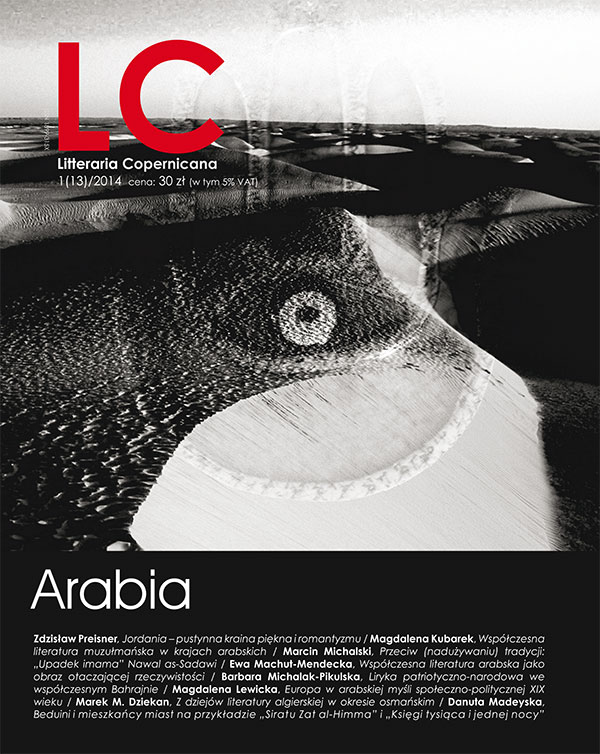MOTIV OF TUFAYLI IN THE CLASSICAL ARABIC LITERATURE
DOI:
https://doi.org/10.12775/LC.2014.009Keywords
Ibn al-Jawzi, Al-Khatib al-Baghdadi, tufayli, adab literatureAbstract
Tufayli was a sponger, an uninvited guest who used to break into private parties, usually weddings, and eat the food which was intended for those who were invited. He is also a hero of the anecdotes of adab literature and this character creates the popular motif in adab works. Al-Jahiz was the first adib who wrote Kitab at-tufayliyyin, the work exclusively devoted to tufaylis, but it has not survived. Up to XI century the anecdotes about tufaylis had been included into many adab anthologies and encyclopedias. In XI century Al-Khatib al-Baghdadi composed his Kitab at-tatfil wa-hikayat at-tufayliyyin wa-akhbaruhum wa-nawadir kalamihim wa-ash’aruhum, the only survived original monograph on uninvited guests. From that time the work had been the main source of stories of tufaylis. Four centuries later Al-Aqfahsi used all the material from Al-Baghdadi’s book and incorporated the anecdotes into his Al-Qawl an-nabil bi-dhikr at-tatfil. But even earlier Ibn al-Jawzi included material from Kitab at-tatfil in chapter on tufaylis – “Fatana al-mutataffalin” – in his Kitab al-adhkiya. The paper shows Ibn al-Jawzi’s method of incorporating the anecdotes in the chapter, analyzes its structure and role in the whole work. It also underlines the influences of al-Baghdadi’s work on Kitab al-adhiya.
Downloads
Published
How to Cite
Issue
Section
Stats
Number of views and downloads: 1046
Number of citations: 0



